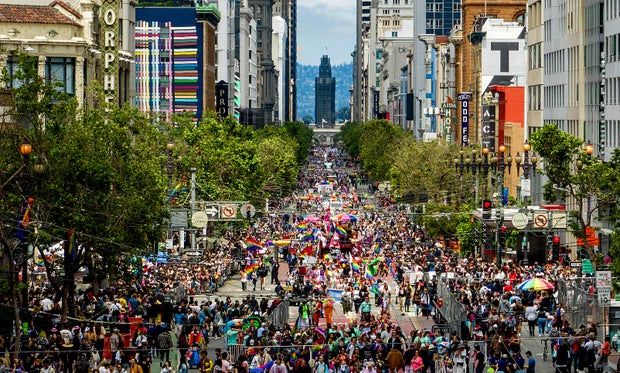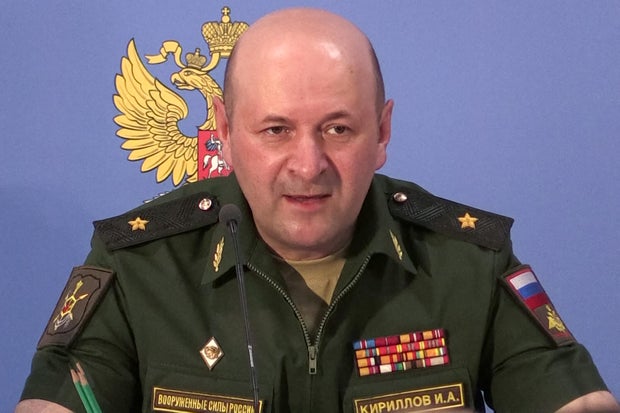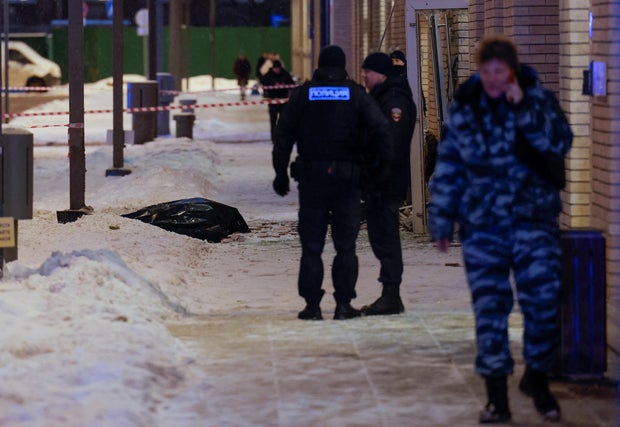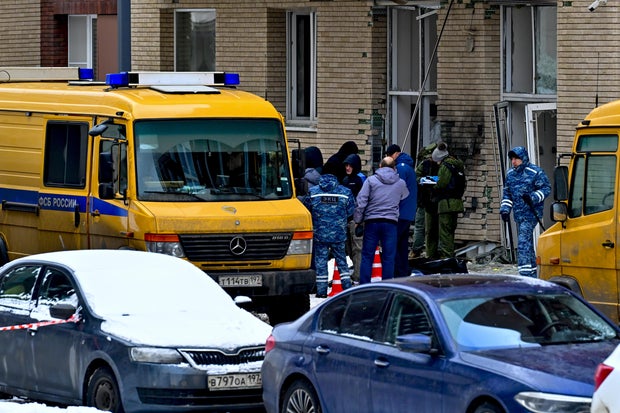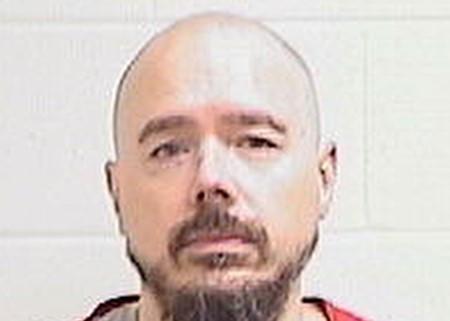CBS News
Pride Month is starting to show its colors worldwide as festivities start today. What to know

Pride Month, the worldwide celebration of LGBTQ+ culture and rights, kicks off Saturday with events around the globe.
But this year’s festivities in the U.S. will unfold against a backdrop of dozens of new state laws targeting LGBTQ+ rights, particularly transgender young people.
Here are things to know about the celebrations and the politics around them.
What is Pride Month?
The monthlong global celebration began with Gay Pride Week in late June 1970, a public celebration that marked the first anniversary of the violent police raid at New York’s Stonewall Inn, a gay bar.
At a time when LGBTQ+ people largely kept their identity or orientation quiet, the June 28, 1969, raid sparked a series of protests and catalyzed the movement for rights.
The first pride week featured marches in Chicago, Los Angeles, New York and San Francisco, and it has grown ever since. Some events fall outside of June: Tokyo’s Rainbow Pride was in April and Rio de Janeiro has a major event in November.
In 1999, President Bill Clinton proclaimed June as Gay and Lesbian Pride Month.
Eduardo Munoz Alvarez / AP
What is being celebrated?
Pride’s hallmark rainbow-laden parades and festivals celebrate the progress the LGBTQ+ civil rights movement has made.
In the U.S. in April, a federal appeals court ruled North Carolina and West Virginia’s refusal to cover certain health care for transgender people with government-sponsored insurance is discriminatory.
In one compromise in March, a settlement of legal challenges to a Florida law critics called “Don’t Say Gay” clarifies that teachers can have pictures on their desks of their same-sex partners and books with LGBTQ+ themes. It also says books with LGBTQ+ characters and themes can remain in campus libraries and gay-straight alliance chapters at schools need not be forced underground.
Greece this year legalized same-sex marriage, one of three dozen nations around the world to do so, and a similar law approved in Estonia in June 2023 took effect this year.
What’s being protested?
Rights have been lost around the world, including heavy prison sentences for gay and transgender people in Iraq and the death penalty for “aggravated homosexuality” in Uganda. More than 60 countries have anti-LGBTQ+ laws, advocates say.
Tightening of those laws has contributed to the flow of people from Africa and the Middle East seeking asylum in Europe.
In recent years, Republican-controlled U.S. states have been adopting policies that target LGBTQ+ people, and particularly transgender people, in various ways.
Twenty-five states now have laws banning gender-affirming care for transgender minors. Some states have taken other actions, with laws or policies primarily keeping transgender girls and women out of bathrooms and sports competitions that align with their gender.
GOP state attorneys general have challenged a federal regulation, set to take effect in August, that would ban the bathroom bans at schools. There also have been efforts to ban or regulate drag performances.
Most of the policies are facing legal challenges.
Since Roe v. Wade was overturned in 2022, leading to restrictive abortion laws in most GOP-controlled states, LGBTQ+ advocates are worried about losing ground too, said Kevin Jennings, CEO of nonprofit civil rights organization Lambda Legal. On the eve of Pride, the organization announced a $180 million fundraising goal for more lawyers to challenge anti-LGBTQ+ laws.
Progress such as the 2015 Supreme Court ruling that legalized same-sex marriage nationwide could be lost without political and legal vigilance, Jennings said.
“Our community looks at what happened to reproductive rights thanks to the Dobbs decision two years ago and has enormous anxiety over whether we’re about to have a massive rollback of what we’ve gained in the 55 years since Stonewall,” Jennings said.
Noah Berger / AP
What about businesses?
While big businesses from Apple to Wells Fargo sponsor events across the U.S., a pushback made ripples last year at one major discount retailer.
Target was selling Pride-themed items last June but removed some from stores and moved displays to the back of some locations after customers tipped them over and confronted workers. The company then faced additional backlash from customers who were upset the retailer gave in to people prejudiced against LGBTQ+ people.
This year, the store has said it would not carry the items at all its stores. But the company remains a major sponsor of NYC Pride.
Meanwhile, Starbucks was under fire last year after the company was accused by some U.S. employees of banning Pride decorations, which the company said was untrue.
Are events safe?
Keeping the events safe is the top priority, organizers said, but there could be challenges.
The FBI and U.S. Department of Homeland Security issued an advisory in May that foreign terrorist organizations could target events associated with Pride. The same month, the State Department renewed a security warning for Americans overseas, especially LGBTQ+ people and events globally.
Law enforcement officials noted ISIS sympathizers were arrested last year for attempting to attack a June 2023 Pride parade in Vienna and that ISIS messaging last year called for followers to attack “soft targets.”
The agencies say people should always watch out for threats made online, in person or by mail. People should take note if someone tries to enter a restricted area, bypass security or impersonate law enforcement and call 911 for emergencies and report threats to the FBI.
NYC Pride has a heavy security presence and works with city agencies outside the perimeter, said Sandra Perez, the event’s executive director. The group expects 50,000 people marching in its June 30 parade and more than 1.5 million people watching.
“The fight for liberation isn’t over,” Perez said. “The need to be visible and the need to be mindful of what we need to do to ensure that the future generations don’t have these struggles is really top of mind.”
CBS News
Russia says suspect detained in killing of Gen. Igor Kirillov, head of Russian chemical weapons unit

Moscow — Russia’s security service said Wednesday that it had detained a suspect in the killing of a senior general in a Moscow bomb blast. The suspect was described as an Uzbek citizen whom the agency said had been recruited by Ukrainian intelligence services.
Ukrainian security sources told CBS News on Monday that the Security Service of Ukraine (SBU) was behind the explosion that killed Lt. General Igor Kirillov. The claim couldn’t be independently verified, but Russian officials quickly vowed to take revenge against Ukraine’s leaders.
Russia’s Federal Security Service didn’t name the suspect, but it said he was born in 1995. According to an FSB statement, the suspect said he was recruited by Ukrainian special services.
AFPTV / AFP via Getty Images
“Kirillov was a war criminal and an absolutely legitimate target, since he gave orders to use prohibited chemical weapons against the Ukrainian military,” an informed source in the SBU asserted to CBS News. “Such an inglorious end awaits everyone who kills Ukrainians. Retribution for war crimes is inevitable.”
Kirillov was killed by a bomb hidden in an electric scooter outside his apartment building in Moscow, a day after Ukraine’s security service leveled criminal charges against him. His assistant also died in the attack.
The FSB said the suspect had been promised a reward of $100,000 and permission to move to a European Union country in exchange for killing Kirillov. It said that, acting on instructions from Ukraine, the suspect traveled to Moscow, where he picked up a homemade explosive device. He then placed the device on an electric scooter and parked it at the entrance of the residential building where Kirillov lived.
The suspect then rented a car to monitor the location and set up a camera that livestreamed video from the scene to his handlers in the central Ukrainian city of Dnipro. When Kirillov was seen leaving the building, the suspect detonated the bomb.
According to the FSB’s statement, the suspect faces “a sentence of up to life imprisonment.”
Kirillov, 54, was the chief of the Russian military’s radiological, biological and chemical protection forces. Either Kirillov himself or his military unit were sanctioned by several countries, including the U.S., Britain and Canada, for the alleged use of chemical weapons on the battlefield in Ukraine. On Monday, Ukraine’s SBU had opened a criminal investigation against him, accusing him of directing the use of banned chemical weapons.
Maxim Shemetov/REUTERS
Ukraine’s SBU has said it recorded more than 4,800 occasions when Russia used chemical weapons on the battlefield since President Vladimir Putin launched his full-scale invasion in February 2022. In May, the U.S. State Department announced sanctions against Kirillov’s unit, saying the U.S. had recorded the use of chloropicrin, a poison gas first deployed in World War I, against Ukrainian troops.
Russia has denied using any chemical weapons in Ukraine and, in turn, has accused Kyiv of using toxic agents in combat, and Kirillov was allegedly behind the spread of that propaganda.
Kirillov, who had been in his post since April 2017, was accused by the U.S. government of helping to spread disinformation about biological weapons and research.
In March 2023, about a year into Russia’s full-scale invasion, the U.S. State Department said Kirillov had “significantly increased his media engagement” to issue repeated, baseless claims that the U.S. government had been involved in creating both the mpox virus and COVID-19, and that the U.S. “is developing biological weapons able to selectively target ethnic groups.”
“The U.S. Government is concerned that this false narrative may be a prelude for a false-flag operation, where Russia itself uses biological, chemical, or nuclear weapons in Ukraine, and then attempts to blame it on Ukraine and/or the United States,” the State Department said at the time.
Sefa Karacan / Anadolu via Getty Images
The bomb used in Tuesday’s attack was triggered remotely, according to Russian news reports. Images from the scene showed shattered windows and scorched brickwork.
Russia’s top state investigative agency said it’s looking into Kirillov’s death as a case of terrorism, and officials in Moscow vowed to punish Ukraine.
CBS News
Suspect detained in killing of Gen. Igor Kirillov, head of Russia’s biological, chemical forces in Moscow blast

Moscow — Russia’s security service said Wednesday that it has detained a suspect in the killing of a senior general in Moscow.
The suspect was described as an Uzbek citizen recruited by Ukrainian intelligence services.
Russia’s Federal Security Service, or FSB, didn’t name the suspect, but said he was born in 1995. According to an FSB statement, the suspect said he was recruited by Ukrainian special services.
Ukrainian security sources had told CBS News Monday that the Security Service of Ukraine (SBU) killed Kirillov in a special operation. The claim couldn’t be independently verified, but Russian officials quickly vowed to take revenge against Ukraine’s leaders.
AFPTV / AFP via Getty Images
Lt. Gen. Igor Kirillov was killed Tuesday by a bomb hidden in a scooter outside his apartment building in Moscow, a day after Ukraine’s security service leveled criminal charges against him. His assistant also died in the attack. A Ukrainian official said the service carried out the attack.
The FSB said the suspect had been promised a reward of $100,000 and permission to move to a European Union country in exchange for killing Kirillov.
The agency stated that, acting on instructions from Ukraine, the suspect traveled to Moscow, where he picked up a homemade explosive device. He then placed the device on an electric scooter and parked it at the entrance to the residential building where Kirillov lived.
The suspect then rented a car to monitor the location and set up a camera that livestreamed footage from the scene to his handlers in the central Ukrainian city of Dnipro. Once Kirillov was seen leaving the building, the suspect detonated the bomb.
According to the FSB’s statement, the suspect faces “a sentence of up to life imprisonment.”
Kirillov, 54, was the chief of the military’s nuclear, biological and chemical protection forces and was under sanctions from several countries, including the U.K. and Canada, for his actions in Moscow’s military operation in Ukraine. On Monday, Ukraine’s Security Service, or SBU, opened a criminal investigation against him, accusing him of directing the use of banned chemical weapons.
Russia has denied using any chemical weapons in Ukraine and, in turn, has accused Kyiv of using toxic agents in combat.
Kirillov, who took his current job in 2017, was one of the most high-profile figures to level those accusations. He held numerous briefings to accuse the Ukrainian military of using toxic agents and planning to launch attacks with radioactive substances – claims that Ukraine and its Western allies rejected as propaganda.
The bomb used in Tuesday’s attack was triggered remotely, according to Russian news reports. Images from the scene showed shattered windows and scorched brickwork.
Sefa Karacan / Anadolu via Getty Images
Russia’s top state investigative agency said it’s looking into Kirillov’s death as a case of terrorism, and officials in Moscow vowed to punish Ukraine.
CBS News
Indiana conducts first execution in 15 years, puts quadruple killer to death

Michigan City, Indiana — An Indiana man convicted of killing four people including his brother and his sister’s fiancé decades ago was put to death Wednesday, without any independent witness, marking the state’s first execution in 15 years.
Joseph Corcoran, 49, was pronounced dead at 12:44 a.m. CST at the Indiana State Prison in Michigan City, Indiana, the Indiana Department of Correction said in a statement. CBS Indianapolis affiliate WTTV reports that officials said the execution process started just after midnight.
Indiana Department of Corrections via AP
Corcoran was scheduled to be executed with the powerful sedative pentobarbital, but the state agency’s statement did not mention that drug. Corcoran’s execution was the 24th in the U.S. this year.
According to WTTV, the statement said Corcoran told officials his last words were, “Not really. Let’s get this over with.”
He was convicted in the July 1997 shootings of his brother, 30-year-old James Corcoran, his sister’s fiancé, 32-year-old Robert Scott Turner, and two other men, Timothy G. Bricker, 30, and Douglas A. Stillwell, 30.
According to court records, before Corcoran fatally shot the four victims he was under stress because the forthcoming marriage of his sister to Turner would necessitate moving out of the Fort Wayne, Indiana, home he shared with his brother and sister.
While jailed for those killings, Corcoran reportedly bragged about fatally shooting his parents in 1992 in northern Indiana’s Steuben County. He was charged in their killings but acquitted.
Last summer, Gov. Eric Holcomb announced plans to resume state executions following a yearslong hiatus marked by a scarcity of lethal injection drugs nationwide.
The state provided limited details about the execution process, and no media witnesses were permitted under state law.
Indiana and Wyoming are the only two states that do not allow members of the media to witness state executions, according to a recent report by the Death Penalty Information Center.
Corcoran’s attorneys had fought his death penalty sentence for years, arguing he was severely mentally ill, which affected his ability to understand and make decisions. This month, his attorneys asked the Indiana Supreme Court to stop his execution but the request was denied.
Corcoran exhausted his federal appeals in 2016. But his attorneys asked the U.S. District Court of Northern Indiana last week to stop his execution and hold a hearing to decide if it would be unconstitutional because Corcoran has a serious mental illness. The court declined to intervene Friday, and the U.S. Court of Appeals for the 7th Circuit did the same Tuesday.
Corcoran’s attorneys then asked the U.S. Supreme Court issue an emergency order halting his execution, but the high court denied their request for a stay late Tuesday, ending Corcoran’s options with the courts.
His sole remaining hope then became Holcomb, who could have commuted Corcoran’s death sentence. But that commutation never came and the execution proceeded as scheduled.
WTTV says Holcomb issued a statement saying Corcoran’s case “has been reviewed repeatedly over the last 25 years – including 7 times by the Indiana Supreme Court and 3 times by the U.S. Supreme Court, the most recent of which was tonight. His sentence has never been overturned and was carried out as ordered by the court.”
Indiana’s last state execution was in 2009 when Matthew Wrinkles was put to death for killing his wife, her brother and sister-in-law in 1994.
Since then, 13 executions were carried out in Indiana, but those were initiated and performed by federal officials in 2020 and 2021 at a federal prison in Terre Haute.
State officials have said they couldn’t continue executions because a combination of drugs used in lethal injections had become unavailable.
For years, there has been a shortage across the country because pharmaceutical companies have refused to sell their products for that purpose. That’s pushed states, including Indiana, to turn to compounding pharmacies, which manufacture drugs specifically for a client. Some use more accessible drugs such as the sedatives pentobarbital or midazolam, both of which, critics say, can cause intense pain.
Religious groups, disability rights advocates and others have opposed his execution. About a dozen people, some holding candles, held a vigil late Tuesday to pray outside the prison, which is surrounded by barbed wire fences in a residential area about 60 miles east of Chicago.
“We can build a society without giving governmental authorities the right to execute their own citizens,” said Bishop Robert McClory of the Diocese of Gary, who led the prayers.
Other death penalty opponents also demonstrated outside the prison Tuesday night, some holding signs that read “Execution Is Not The Solution” and “Remember The Victims But Not With More Killing.”
“There is no need and no benefit from this execution. It’s all show,” said Abraham Borowitz, director of Death Penalty Action, his organization that protests every execution in the U.S.
Prison officials said in a brief statement Tuesday evening that Corcoran “requested Ben & Jerry’s ice cream for his last meal.”
Corcoran said farewell late Tuesday to relatives, including his wife, Tahina Corcoran, who told reporters outside the prison that they discussed their faith and their memories, including attending high school together. She reiterated her request for Indiana’s governor to commute her husband’s death sentence.
Tahina Corcoran said her husband is “very mentally ill” and she didn’t think he fully grasped what was happening to him.
“He is in shock. He doesn’t understand,” she said.



